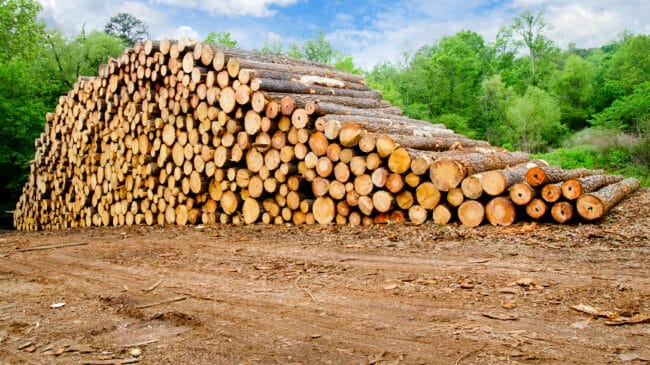Summary
The Georgia Timber Equipment Exempt from Property Taxes Measure on the November 2022 ballot would change the state’s tax law so that starting Jan. 1, 2023, all timber equipment such as feller bunchers, forwarders, harvesters, chainsaws, skidders, saws, stump grinders, log loaders, and bandsaws would be exempt from ad valorem taxes. However, this exemption would not include timber itself.
Fiscal Impact
Data shows the timber industry paid nearly $20 million in ad valorem taxes to the state in 2020. However, the state does not show what percentage of that revenue is derived from timber equipment so it is unknown how this would impact state and local government tax revenues.
Proponents’ Arguments
Georgia Gov. Brian Kemp supports the measure, and has argued the measure will “help us treat the forestry industry the same way that we do agriculture as well as protect hunting, fishing, and conservation land, and more.”
The timber industry also supports the measure. Tobey McDowell of C. McDowell Logging claimed, “It takes 8-10 pieces of equipment, including the trucks and trailers, for us to run just one logging crew, and the overall costs for that equipment is increasing every day. So, when you consider the tax bill on our equipment, it determines whether we purchase new equipment, keep running old equipment, or just give up all together. So, right now any break we can get will help.”
Opponents’ Arguments
There is no organized campaign against this measure. State Sen. Lindsey Tippins (R-Cobb County) voted against the measure when it was before the state legislature and told us in a phone interview that he opposes it based upon the potential unfairness of the timber industry being exempt from ad valorem taxes while other industries, such as the construction industry, and many others, still have to pay those taxes.
Discussion
This tax measure is another initiative in Georgia Gov. Brian Kemp’s consistent efforts to provide tax relief for the state’s agricultural sector. Most of Georiga’s state lawmakers, especially in the Republican Party, also represent constituencies in the rural parts of the state where tax breaks for the agricultural and timber industries have been politically popular. This measure is very similar to one passed in 2000 that gave tax exemption for certain farm equipment of family-owned farms for tools and trade implements of manual laborers. In 2006, voters approved an additional measure expanding the homestead exemptions and property tax exemptions for agricultural products.
However, a key principle of good tax policy is that taxes should not pick winners. Broad-based tax cuts are always better than narrowly targeted ones that only benefit a select, politically-connected, or popular group. This measure is not a broad-based tax cut. At best, it would expand an existing tax break the agricultural industry already gets to apply more broadly across that industry.
Tax breaks for selected industries are not without consequences. They are not necessarily accompanied by state or local government spending cuts to offset any lost revenue, so the tax burden often shifts to taxpayers or industries that are not as favored by politicians.

